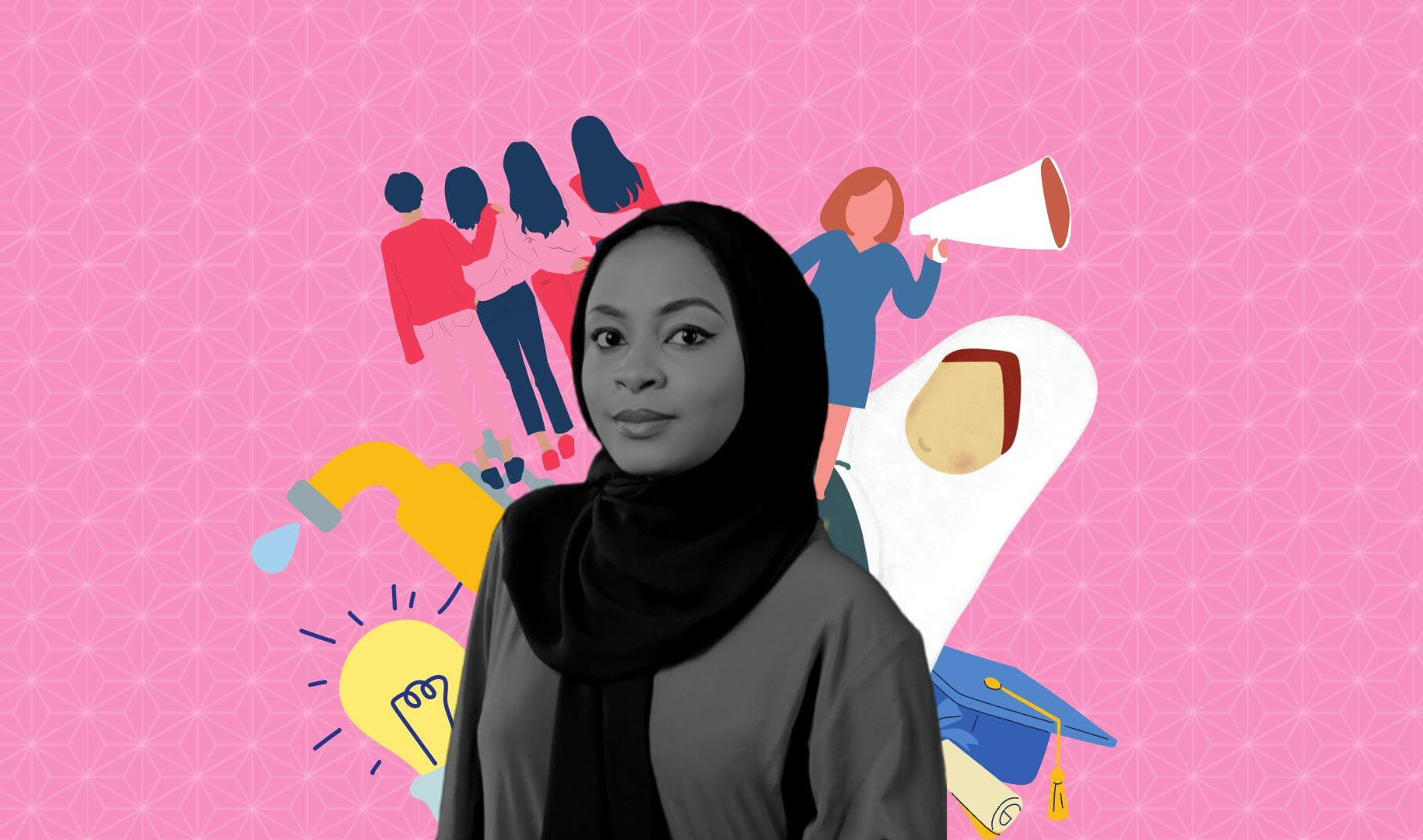In late 2013, Fateemah Habeeb was deeply moved after witnessing the hardships faced by vulnerable women and children during her initial visit to Internally Displaced Persons or IDPs camps in Maiduguri, the capital city of Borno State.
At just 14, Habeeb had always felt a strong desire to help victims of the Boko Haram crises who were a constant sight in Maiduguri, where she was growing up.
To address the plight of these victims who had lost their livelihoods, she took the initiative to establish the Advocacy for Human Value Foundation, which she registered at the Corporate Affairs Commission in 2017.
The non-profit works to safeguard vulnerable women and children from the threat of sexual exploitation while also addressing the fundamental needs of communities, including access to clean Water, Sanitation, and Hygiene (WASH) facilities, essential healthcare services, and educational opportunities.
“Apart from providing them with those necessities, we also advocate to see that they become stronger and well-informed. So that despite their challenges, they should be able to speak out about the problems they are facing,” Habeeb said.
Across Northeast Nigeria, Borno State is the most affected by the Boko Haram insurgency, with thousands killed and millions displaced and housed in IDP camps across the state.
And even there, women and girls are not guaranteed their safety. A 2021 study revealed that women and children at the IDP camps are exposed to insecurity, health challenges, hunger and a lack of education, making a bad situation worse for these vulnerable groups.
Impacting women and children
One of the earlier projects of the organisation was to sensitise women and girls in IDP camps in Borno on how to protect themselves from sexual exploitation. The foundation went ahead to train the girls on menstrual hygiene and then set up a platform for reporting for the women and girls in the camps to report cases of rape or harassment.
“We also provided them with sanitary pads and emphasised to them the importance of maintaining menstrual hygiene,” Habeeb said.
Later, the foundation collaborated with seasoned entrepreneurs to empower women in Maiduguri with profitable skills and small grants that will help them become self-reliant. “We feel that willcreate a bigger impact and minimize almsbegging in the streets,” Habeeb explained.
In October 2020, the foundation legged out of Maiduguri. It partnered with Huawei Technologies and the Federal Ministry of Communication and Digital Economy to donate ICT equipment and renovated classrooms and offices at Al-Walidyn Charitable School in Pantami Community, Gombe State, Nigeria.
Finding out that some of the children couldn’t afford to go to school, the foundation came to their rescue with scholarships.
“After the renovations of theschool buildings, we also provided scholarships to 24 students for both primary and secondary schools to give them a chance of becoming literate,” stressed Habeeb.
One of the beneficiaries of the scholarship, Abbas Abdulkarim, shared with Prime Progress his excitement about the scholarship. “I’m hoping to be a medical doctor in future, and I can’t thank them enough for giving me a chance to fulfil my dreams,” he said.
Habeeb held that she is using little efforts like that to help reduce the county’s alarming figures of out-of-school children.
Assisting communities with water facilities
One among its numerous projects in 2022, the foundation built a borehole facility in the Dalori Community of Maiduguri in Borno State.
The community has in the past battled with a lack of access to potable water- but now, with the borehole facility, the residents have admitted that it will ease their suffering, improve their health, and enhance their farming activities.
“We are so happy to have this water facility here. Before now, we were struggling with using unhygienic water systems or having to trek long distances to get the good one,” Zanna Ibrahim, a resident of the community, told Prime Progress.
“Now we can use it for drinking, cooking, and farming activities without the fear of contracting diseases. We are so grateful for this assistance,” he added.
Setbacks
Even though Habeeb has received her parent’s blessings and their support as she pursues her humanitarian activities, it has not always been that smooth.
Earlier, when she started the foundation as a secondary school student, Habeeb was told to focus on her school and not get involved in activities that involved men, but she persisted. “You know, society won’t stop talking. Everything you do, people must talk, so I just do my work and focus on what’s right,” Habeeb said.
And even before she graduated from the Department of Political Science at the University of Maiduguri in 2021, she struggled to balance her academics and humanitarian work.
“Sometimes you are at work, and an important class is going on, and sometimes while in school, an important meeting or conference of a humanitarian engagement is going on that may require your attention. So you struggle to choose,” she said.
Habeeb added that the foundation relies mostly on donations and collaborations to operate, and that limits the projects they can carry out every year.
But she said with adequate funding and support, they would expand beyond the Northeast and reach out to other regions.
Despite the setbacks, the 23-year-old has remained resilient, refusing to back down, and she is glad she did not. “In our fight against illiteracy, we have been able to give children their right to education by enrolling them in schools and funding their education. We have organised over 15 projects across northern Nigeria, improving lives and giving women a voice in society,” she said.
In late 2013, Fateemah Habeeb was deeply moved by the hardships faced by women and children in IDP camps in Maiduguri. At 14, she founded the Advocacy for Human Value Foundation to aid victims of the Boko Haram crises. Registered in 2017, the non-profit focuses on preventing sexual exploitation and providing essential services such as Water, Sanitation, and Hygiene (WASH), healthcare, and education.
The organization began by educating women and girls on protecting themselves and maintaining menstrual hygiene, providing sanitary pads, and creating a platform for reporting sexual abuse. It also empowered women with skills and small grants to reduce street begging in Maiduguri. In October 2020, the foundation, in collaboration with Huawei Technologies and the Federal Ministry of Communication and Digital Economy, donated ICT equipment and renovated a school in Gombe State, offering scholarships to 24 students.
In 2022, the foundation built a borehole in Dalori Community, improving access to potable water. Despite challenges, including balancing her education and humanitarian work and relying on donations, Habeeb has been persistent. The foundation managed to execute over 15 projects, aiding children’s education and women’s empowerment across northern Nigeria.






